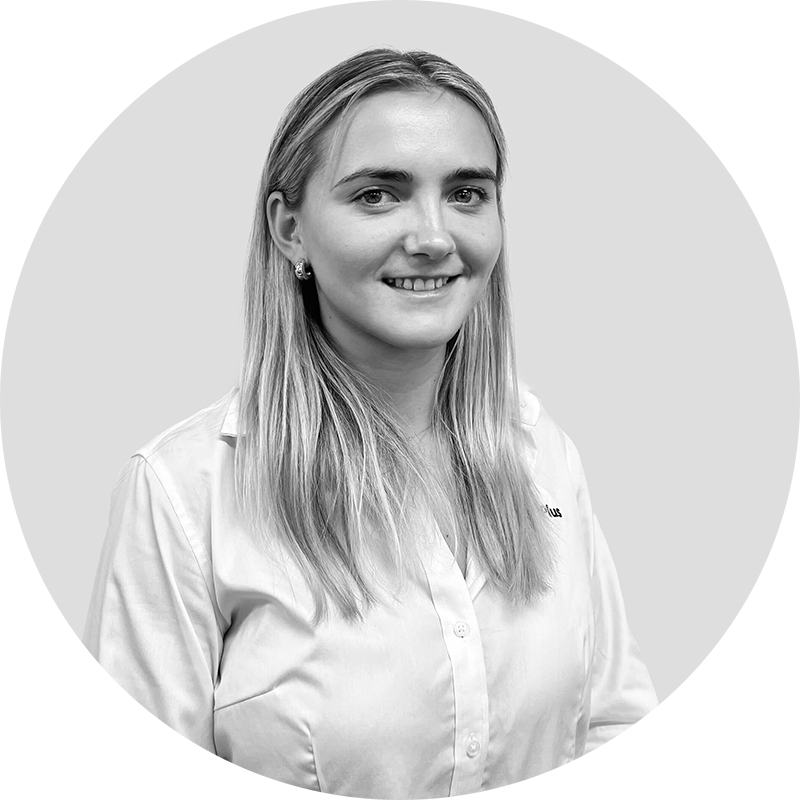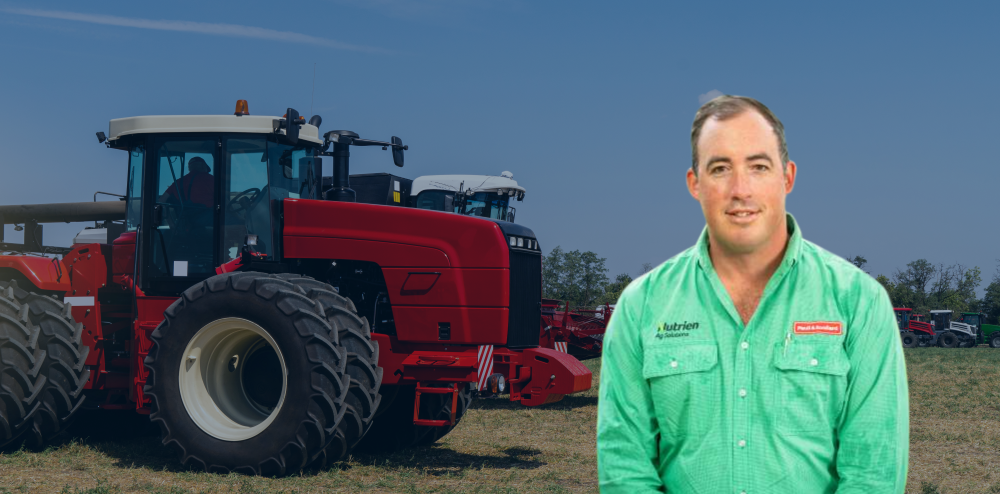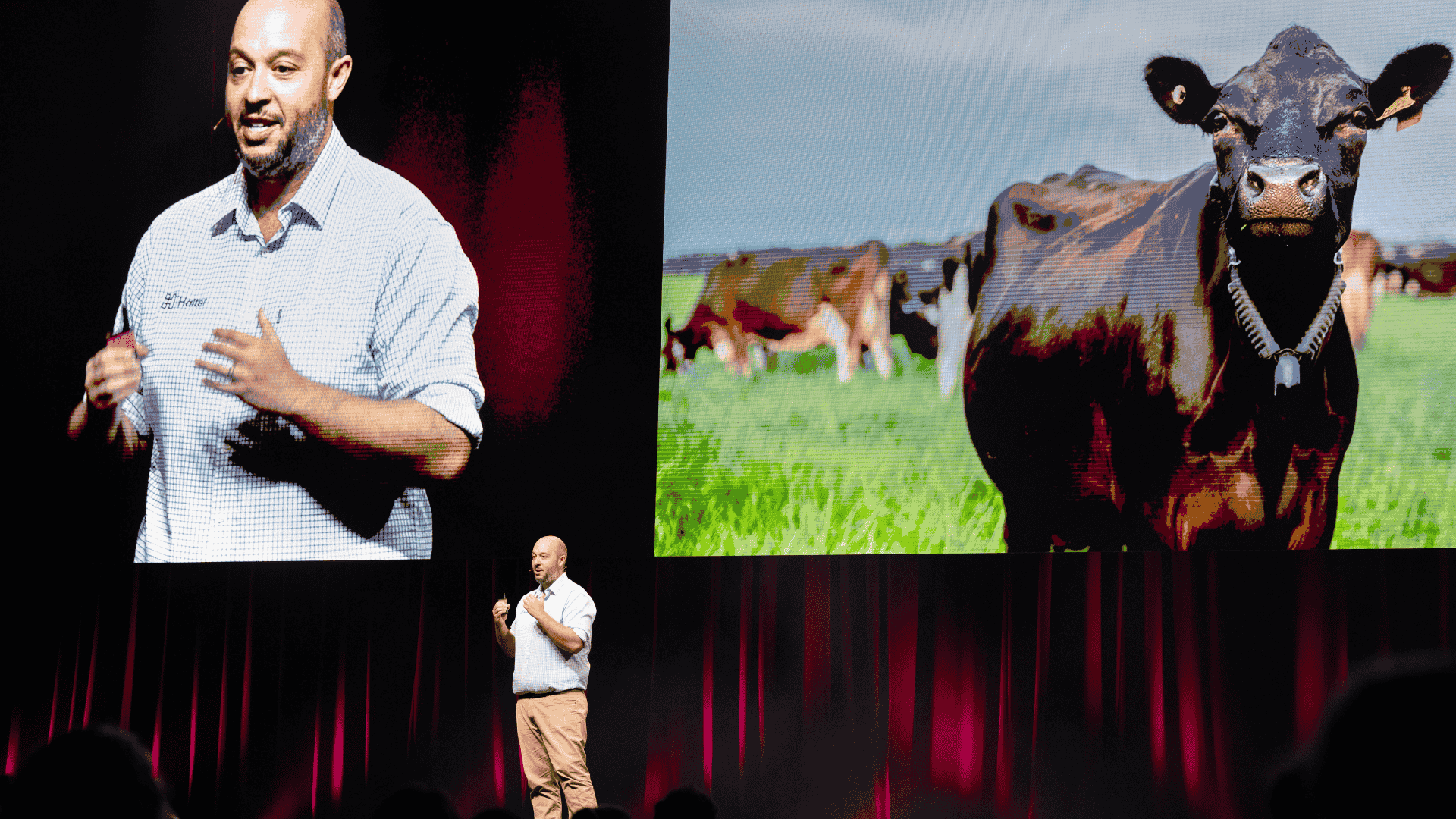Virtual fencing gets green light at ag tech event
Virtual fencing has been given the green light in Victoria, with Halter’s P5 electronic collar system on Wednesday becoming the first technology...
3 min read
 Alex McLaughlin
:
Feb, 13, 2025
Alex McLaughlin
:
Feb, 13, 2025

From shifting market trends to the rise of online sales, livestock and property agent, Dan Holt has seen it all. In a business where timing is everything, he’s got a clear philosophy: "Know the product, know the market, then own the market."
For Mr Holt, becoming a machinery agent was an unconventional but natural career path. Growing up on a rural property in Australia, his childhood was filled with animals of all kinds—dogs, horses, cattle, sheep, and even a pet camel (albeit a stuffed one) that he once took to preschool.
His parents’ deep involvement in animal genetics and commercial Angus breeding ingrained in him a lifelong passion for agriculture.
"It's probably no surprise to people who knew me from a young age that I'm now involved in agribusiness," Mr Holt said.
His career, however, took a few detours before he found his place in the industry. Graduating with a Bachelor of Business (Marketing) and a joint study in International Business Management from La Trobe University, Mr Holt entered the workforce during the Global Financial Crisis.
His first major role was in commercial sales with Mars Corporation, an experience that provided valuable business insights but left him longing for a career closer to his roots.
Relocating back to Albury, NSW, Mr Holt sought opportunities in agribusiness and joined Paull & Scollard in 2014.
"I've always said, 'Know the product, know the market, then own the market', and that's what Paull & Scollard did." The agency was later acquired by Landmark, now Nutrien Ag Solutions. Mr Holt has remained a key part of the team, now marking 11 years with the business.
When asked "what do I like most about the job? Mr Holt replied.
“That's a simple answer—the people you deal with. Diverse, interesting individuals, all with different goals and motivations. The variety is what keeps it interesting."
He also appreciates the autonomy and opportunities within the industry.
"I'm passionate about Australian agriculture. It's an extremely resilient and sustainable industry, which sadly doesn't get the political recognition it deserves," he said.
“It's the only industry where you pay retail, sell wholesale, and pay the freight both ways."
Over the years, Mr Holt has encountered some unique and rare pieces of equipment. One of the most surprising sales involved a Furphy tank end, covered in rust and mud, which turned out to be one of the earliest Furphy company products—nearly 150 years old.

Antique J. Furphy & Sons water cart sold for $4,300 in December 2022. Pic: Supplied
"Some of the tractors during Covid also shocked me. Fifteen-year-old tractors with 10,000 hours were making enormous money—you could buy a brand-new one for what they were selling for. It reminded me that we are in the supply vs demand business."
Another unforgettable moment was dealing with a German buyer from a war museum who was eager to purchase a collection of rare German-made Bulldog Caterpillar tractors.
"He turned up with a briefcase handcuffed to his wrist, full of hundred-dollar bills. He barely spoke English and tried to pay for over $50,000's worth of machinery in cash. It was a shock!"
Mr Holt has observed a significant shift toward online machinery sales, particularly through platforms like AuctionsPlus.
He believes the growth in online agricultural machinery sales before COVID was market-driven, with the industry already leaning towards digital selling platforms—COVID simply accelerated the trend.
“The landscape has completely changed. Ten years ago, I’d estimate our branch held six to ten sales per year, all on-property.
"Now, we might have one or two on-property clearing sales, with the rest conducted online. Selling online makes us more agile as a business.
“During COVID, I noticed many agency-based businesses suddenly offering online machinery sales, which made sense—we are in the service industry, after all.
"But as quickly as they appeared, they disappeared when borders reopened and life returned to normal. In my view, those businesses were retreating from the market, neglecting opportunities for growth.
“For us, growth comes from driving incremental sales. Our branch’s focus on online machinery sales has become a genuine and expanding revenue stream.
"Many in agribusiness today are younger, more tech-savvy, and more time-poor," he said.
“Buyers would rather purchase from the seat of their header while stripping a crop than attend an on-property clearing sale. So, as an agent, we need to 'fish where the fish are'."
According to Mr Holt, machinery sales are closely tied to the performance of the red meat and grain markets.
"When the season and market are strong, there’s more disposable income for machinery upgrades. But 2024 was tough—frosted, moisture-stressed crops and a volatile red meat market meant farmers were struggling to profit," he said.
“In contrast, 2021-22 saw record livestock and grain prices, leading to high machinery clearance rates and top-dollar sales. The key lesson for sellers is to meet the market, not hold onto past values."
Mr Holt has picked up plenty of lessons over his career, but a few stand out.
"If you want to ruin a good sale, apply a heavy buyer's premium. A 4% buyer's premium is like paying 14% GST—it scares buyers away."
Communication and planning are also crucial. "Every entry, every photo, every video matters. One extra field or video can make all the difference. I make a habit of recording videos of machinery starting and running, including tractor PTOs and three-point linkages. No one ever complains about too much detail—only too little."
And when mistakes happen? "Own up to them. If you mess up, attack the problem head-on. People respect honesty."

Virtual fencing has been given the green light in Victoria, with Halter’s P5 electronic collar system on Wednesday becoming the first technology...
.png)
What if the real issue with “kids not stepping up” isn’t them at all?In this episode, Ben Law sits down again with high-performance advisor Chris...
.png)
As Victorians begin the long recovery following devastating bushfires which burnt more than 400,000 hectares, a pair of contract...